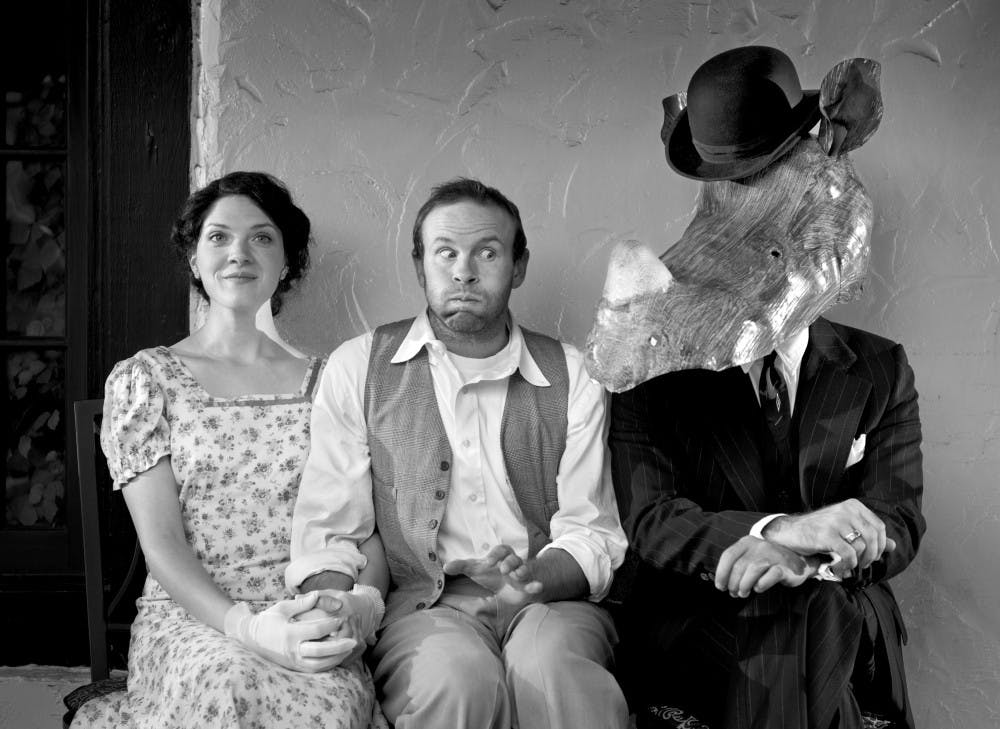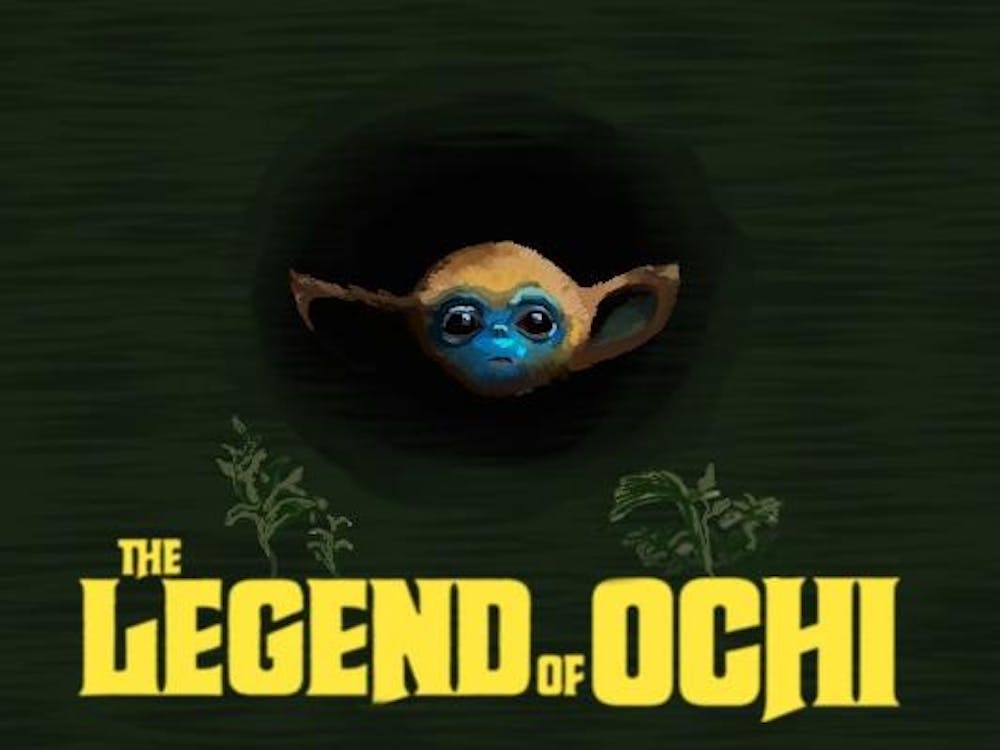Theater of the Absurd calls for a rapid-fire pace, a focus on the mindlessness of humanity and society, repetitive actions and illogical patterns that challenge and intrigue the audience. The University’s Drama Department aspires to do just this in its rendition of Eugene Ionesco’s Rhinoceros. The show focuses on inhabitants of a small French town who all turn into rhinoceroses during the course of the play, with the exception of one man who refuses to conform to the vision of this flawed society. Assoc. Drama Prof. Marianne Kubik, the production’s director, answered a few questions about the upcoming show in an interview with The Cavalier Daily.
Cavalier Daily: What are important themes and messages presented in the production that you would like the audience to take away?
Marianne Kubik: The most prominent theme for me is the human tendency toward the collective consciousness, what we call “groupthink” today: the pattern of generating a common, collective set of ideals based on anything from morals to kinship to race and gender. Ionesco was interested in boldly laying this human condition into our laps so we could examine why both primitive and civilized groups tend to move away from individual thinking and toward a collective vision for the world.
CD: Why was this show chosen for the U.Va. Drama Department this year?
MK: Our Season Selection Committee chooses plays that provide thought-provoking and relevant subject matter for our audiences, and acting and production values that practically challenge our students. This script provides actors and designers the opportunity to learn the style of Absurdist Theater. And this presidential election year provides a good opportunity for audiences to consider the collective consciousness versus individual thinking.
CD: What were some of the challenges you faced in the process of putting on the play?
MK: Too many to list! Let’s start with the acting style: fast-paced and abrupt, with a line accuracy that challenged the actors’ memorization skills and levels of concentration. Physical endurance is definitely tested in this play, or at least in my staging of it. Every actor is moving, gesturing, climbing, running and stopping on a dime with choreographed precision … This style demands the actor learn how to focus on only one character need at a time without seeming two-dimensional, while at the same time keeping track of separate conversations going on simultaneously.
CD: How do you manage to transform the actors into rhinoceroses?
MK: I didn’t really focus on shape-changing rhinoceroses. One of our graduate students designed oversized rhinoceros masks for the actors to wear. With the exception of one really funny and crazy scene, that’s about all we did to “transform.” The rhinos are really a symbol, not a reality. They represent the bestial side of human nature, the side devoid of ethics and morality, which Ionesco found everywhere around him in a pre-World War II Europe.
CD: How do you think the audience will react to the absurdist nature of the production?
MK: I expect it will be unusual at first. The repetitive dialogue and illogical thought patterns are purposely there to jolt an audience into the feeling that we can no longer trust any of our expectations of what we hear or see. I expect the audience will also find this funny, even a laugh riot in some places. The actors have spent a month working out really physically comedic bits, using the classic Hollywood screwball comedy as the foundation for unpredictable situations.
Come and join the University Drama Department for Rhinoceros in the Helms Theater Oct. 4-6 and Oct. 10-13 at 8 p.m.







